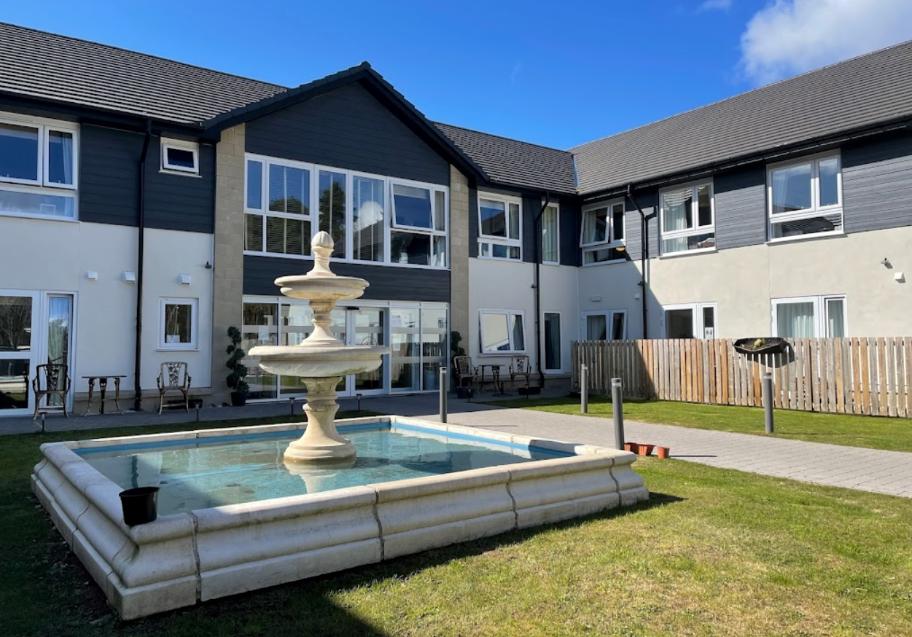What is the Difference Between Residential Care and Nursing Care?

When it comes to long-term care for yourself or a loved one, it's important to understand the difference between residential care and nursing care. While both provide safe, supportive environments for individuals who can no longer live independently, the level of medical care and support with daily activities differs significantly. Kingsacre Care Home in Clydebank offers both residential and nursing care services, tailored to the unique needs of each individual, ensuring the best possible quality of life.
What is Residential Care?
Residential care is designed for individuals who need assistance with daily tasks but do not require round-the-clock medical attention. In a residential care home, residents receive support with personal care, including washing, dressing, eating, and medication management. This type of care is ideal for those who are generally stable health-wise but need help with the day-to-day activities of living.
Who is Residential Care For?
Residential care is well-suited for individuals who:
- Can no longer safely live independently at home
- Require assistance with personal care tasks, like bathing, dressing, and eating
- Need help with mobility and maintaining daily routines
- May have mild dementia or other cognitive conditions
- Benefit from social and recreational activities in a structured environment
- Feel isolated at home and need companionship and support
Residents in residential care typically don’t require frequent medical intervention or constant supervision by a nurse. However, they do benefit from the support of care assistants who are available around the clock.


What is Nursing Care?
Nursing care, provided in a nursing home, offers all the assistance available in residential care, with the added benefit of specialist medical attention from qualified nurses. This is particularly important for residents with complex health conditions or ongoing medical needs that require regular monitoring and treatment.
Who is Nursing Care For?
Nursing care is appropriate for individuals who:
- Have significant physical disabilities
- Experience advanced dementia or mental health conditions
- Require ongoing medical treatment or management of complex health conditions
- Need support with tasks like administering medication, wound care, or tube feeding
- Have severe learning disabilities or mental illnesses
In nursing care settings, registered nurses are present 24/7, working alongside care assistants and visiting health professionals, such as district nurses and GPs, to ensure that all medical needs are met. This ensures that every resident receives the care they require, tailored to their specific medical needs.


Key Differences: Residential Care vs. Nursing Care
Understanding the differences between residential and nursing care can help families make an informed decision. Below is a brief comparison:
Residential Care
- Focuses on assistance with daily living tasks
- Ideal for those with mild to moderate health issues
- Care assistants provide support
- No regular medical intervention required
- Residents can move to nursing care if needs change
Nursing Care
- Includes medical care from registered nurses
- Best for individuals with complex medical needs
- Qualified nurses manage medical care
- 24/7 nursing staff available
- Regular health checks and care planning by nurses
Can the Level of Care Change?
Yes, many residents start in residential care and later move to nursing care as their health needs evolve. This is common for individuals with conditions like dementia, Parkinson’s disease, or those recovering from surgery. At Kingsacre Care Home, we aim to provide seamless care transitions, ensuring residents can continue to live in familiar surroundings as their care needs change.
Understanding Care Costs
Cost is a major factor when considering care options. Generally, nursing care costs more than residential care due to the presence of qualified nurses and specialist medical care. However, those with higher care needs may qualify for NHS-funded nursing care, which covers part of the cost of nursing services.
It's essential to discuss funding options with your local authority to understand your financial options and whether you may be eligible for financial assistance. Residential care and nursing care can also be self-funded, depending on your circumstances.
The Role of Qualified Care Assistants and Nurses at Kingsacre
At Kingsacre Care Home, we pride ourselves on having a compassionate and experienced team, including both care assistants and registered nurses. In residential care settings, care assistants are available to help with daily living tasks and provide emotional support. In nursing care units, registered nurses offer medical care, such as administering medications and managing more complex health conditions.



Dementia and Specialist Care at Kingsacre
Kingsacre Care Home also offers specialist care for those with dementia. This includes a blend of personal, residential, and nursing care, specifically designed for individuals who struggle with memory loss, behavioral symptoms, and difficulties with daily activities. Our specialist dementia care team is trained to understand the nuances of dementia-related conditions and provide the support necessary for residents to feel safe, comfortable, and engaged.
How Medical Professionals Support Our Residents
Our team works closely with visiting healthcare professionals, such as GPs, physiotherapists, and district nurses, to ensure that all residents receive the medical attention they need. This coordinated approach helps ensure that residents at Kingsacre Care Home receive high-quality care, tailored to their specific needs.
Maintaining Independence and Quality of Life
Our aim is to support residents in maintaining their independence for as long as possible. Whether in residential or nursing care, we help individuals with mobility, daily routines, and personal activities while ensuring they feel empowered and involved in their care. Our approach balances support with autonomy, allowing residents to live as independently as possible.
At Kingsacre Care Home, we offer both residential and nursing care, providing a full range of services designed to support residents in every aspect of their lives. Whether you're considering care for yourself or a loved one, understanding the difference between residential and nursing care is essential in making the right decision.
If you have any questions about our care options at Kingsacre or would like to arrange a tour of our facilities, please don’t hesitate to contact us today.




